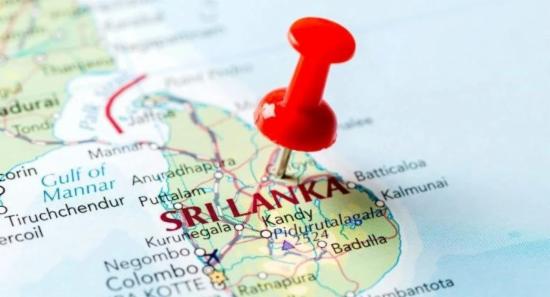.webp)

Fitch Revises Outlook on Sri Lanka to Negative
Colombo (News 1st) - In the aftermath of the sweeping new tax cuts announced by the new administration the Fitch Ratings has revised the outlook on Sri Lanka's Long-Term Foreign-Currency Issuer Default Rating (IDR) to Negative from Stable and has affirmed the IDR at 'B'.
A release issued by Fitch Ratings notes that the new administration's significant shift in fiscal policy and the possibility of rolling back existing fiscal and economic reforms had resulted in their decision to revise Sri Lanka's rating from stable to negative. It adds that the new administration's policies, which are a departure from the policies which aimed to consolidate the financial situation of the country based on revenue, have created uncertainty regarding policies and also increased the external financing risk for the sovereign. The situation becomes worse when one remembers that Sri Lanka has large external debts to be repaid in 2020 and the next few years.
Fitch believes that the VAT rate change and the scrapping of the nation-building tax could alone lower revenue by as much as 2% of GDP, if the Government does not take any measures to recover the revenue lost through the tax cuts. Fitch believes that the Government could be able to recover some of the lost revenue through adjustments to excise taxes, spending cuts on non-priority public investment and recurrent expenditure. However, Fitch believes that despite the administration's efforts the budget deficit could rise by 1.5% to 6.5% in 202 and 6.2% for 2021, which are higher than the authorities' estimates.
The absence of measures to recover the revenue lost through taxes could also have an impact on Government debt in the medium-term according to Fitch. Gross government debt is currently at about 85% of GDP and Fitch expects this to rise in the medium term if measures are not taken by the Government to recover the lost tax revenue.
The rating agency believes even though the new administration also aims to reduce the deficit to below 4.0% of GDP, the changes made to the financial policies could create uncertainty about whether the administration could meet these targets.
Fitch also states that it is most likely that the Extended Fund Facility of the IMF, of which Sri Lanka is in the Seventh and final stage could be completed and that discussions of a new program would have to wait till after the parliamentary elections expected in April 2020.
Fitch notes that Sri Lanka's external balance sheet is weak, with external debt obligations totaling approximately USD19.0 billion due between 2020-2023, compared with foreign-exchange reserves of around USD7.5 billion as of end-November 2019. Fitch expects the current account deficit to widen to about 3.0% of GDP in 2020 and 2021, from an estimated 2.2% in 2019, as domestic demand strengthens.
Other Articles
Featured News





.png )








-753118_550x300.jpg)
-753105_550x300.jpg)


















.gif)